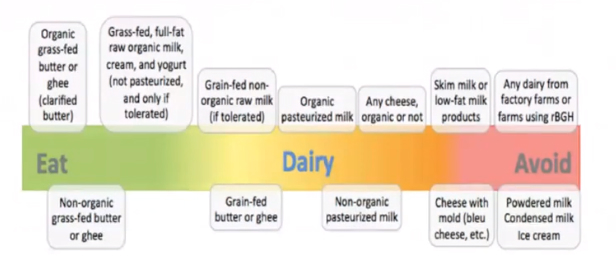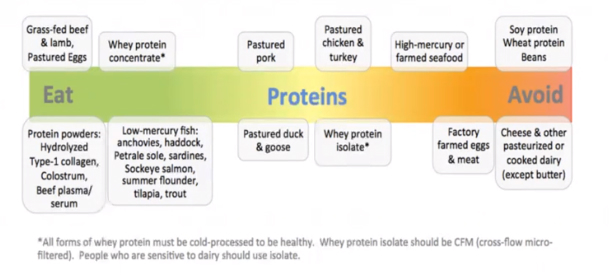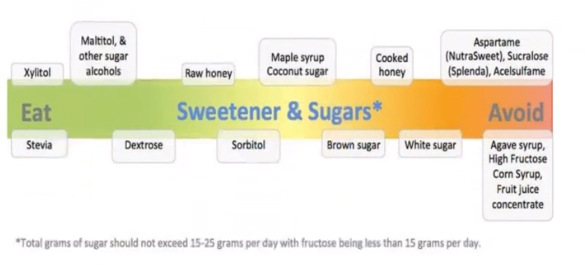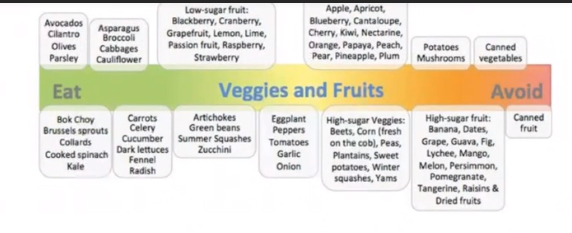We recently hosted a webinar talking about the best nutrition practices for stem cells and an overall healthy body. The review of our webinar is below, or scroll all the way to the end to watch the webinar.
Satisfy the Brain First
The brain is made entirely of fat (57%), and protein (38%), and contains very little carbohydrate (5%). Our modern brains grew up in a low glycemic index environment.
Fasting and Ketosis
Fasting on a ketogenic diet has more benefits. Since our body is depleted from glycogen, we use fat and ketones for energy instead of glucose. As your body gets used to fat and ketones as main sources of energy, you will naturally eat less amounts and less frequently.
Types of Ketone Bones
There are three types of ketones produced when the body goes into ketosis.
Acetoacetate: Created from the breakdown of fatty acids. Either converted into BHB or turned into acetone.
Beta-hydroxybutyric Acid: Formed from acetoacetate. Not technically a ketone because of its structure, but we consider it as one within the keto diet.
Acetone: Created as a side product of acetoacetate. Breaks down quickly. Is removed from the body through the waste or the breath.
Why Butter is Good for You
Ancel Keys got it all wrong, and you’re paying the price.
Saturated fat has never been proven to cause heart disease. Trans fat and polyunsaturated fat does. Butter protects against cancer compared to vegetable oil. Fat soluble vitamins in butter protect against heart disease, atherosclerosis, osteoporosis, and degenerative disease. Vitamin K2 (in butter) protects against atherosclerosis and heart attacks.
Butyrate
Butter’s secret ingredient that makes you bulletproof. Butyrate is a short chain saturated fatty acid (the kind that’s supposed to be bad for you). In mice and rats, butyrate protects against mental illness, increases energy expenditure and improved body composition, reduces the negative effects of type-1 diabetes, and decreases intestinal permeability. In humans it is anti-inflammatory, inhibits NF-Kappa Beta which reduces inflammation.
Some healthy dairy foods you can incorporate into your diet are:
- Organic grass-fed butter or ghee
- Non-organic grass-fed butter or ghee
- Grass-fed, full-fat, raw, organic milk, cream, and yogurt (not pasteurized and only if tolerated)

Some healthy protein foods you can incorporate into your diet are:
- Grass-fed beef and lamb, pastured eggs
- Protein powders: hydrolyzed type-1 collagen, colostrum, beef plasma/serum
- Whey protein concentrate (cold pressed)
- Low-mercury fish: anchovies, haddock, petrale sole, sardines, sockeye salmon, summer flounder, tilapia, trout

Some healthy sweeteners you can incorporate into your diet are:
- Xylitol
- Stevia
- Maltitol, and other sugar alcohols
- Dextrose
- Raw honey

Some healthy veggies and fruits you can incorporate into your diet are:
- Avocados, cilantro, olives, parsley
- Bok choy, brussel sprouts, collards, cooked spinach, kale
- Asparagus, broccoli, cabbage, cauliflower
- Carrots, celery, cucumber, dark lettuces, fennel, radish
- Low-sugar fruit: blackberry, cranberry, grapefruit, lemon, lime, passionfruit, raspberry, strawberry
- Artichokes, green beans, summer squashes, zucchini

Get in touch with one of our four clinics and let us help you create a full wellness plan for you.